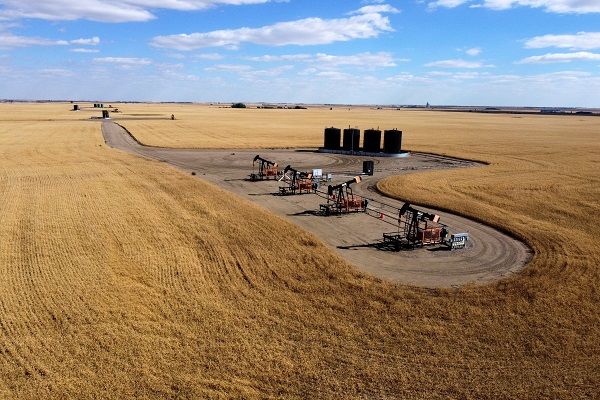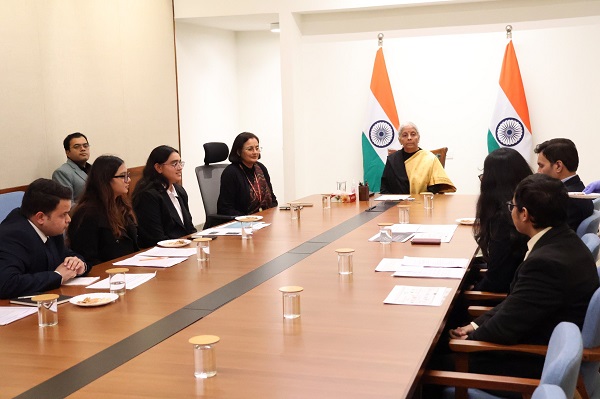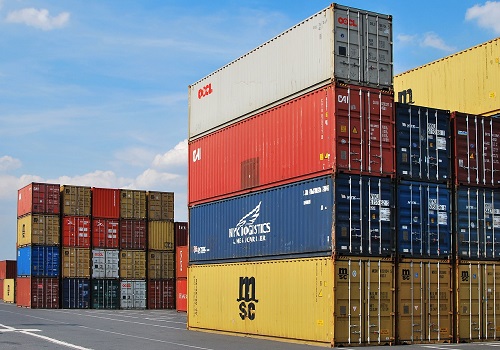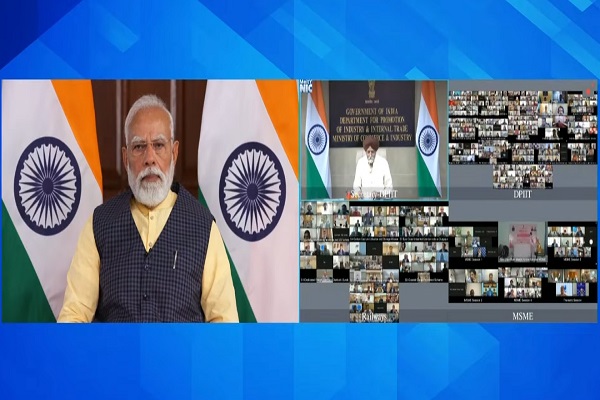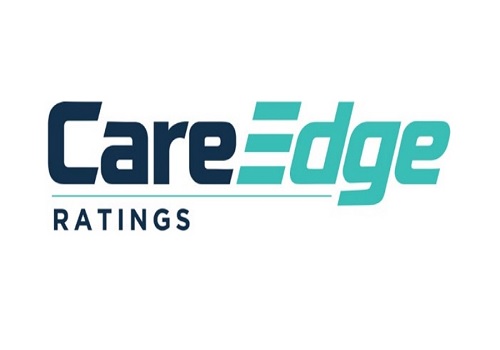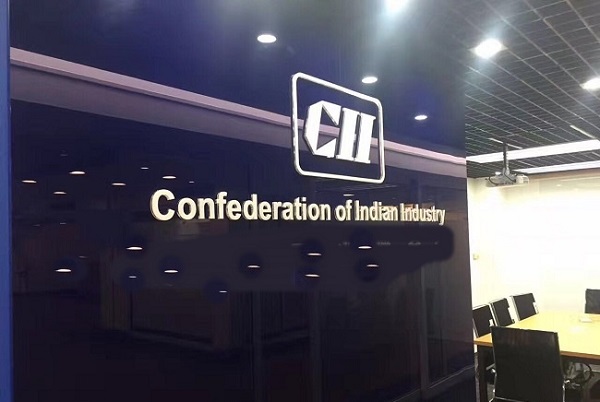Express Industry Council of India (EICI) and KPMG in India unveil ‘Powering India`s Economy, Connecting Businesses and Markets Report’ on India`s Express Industry
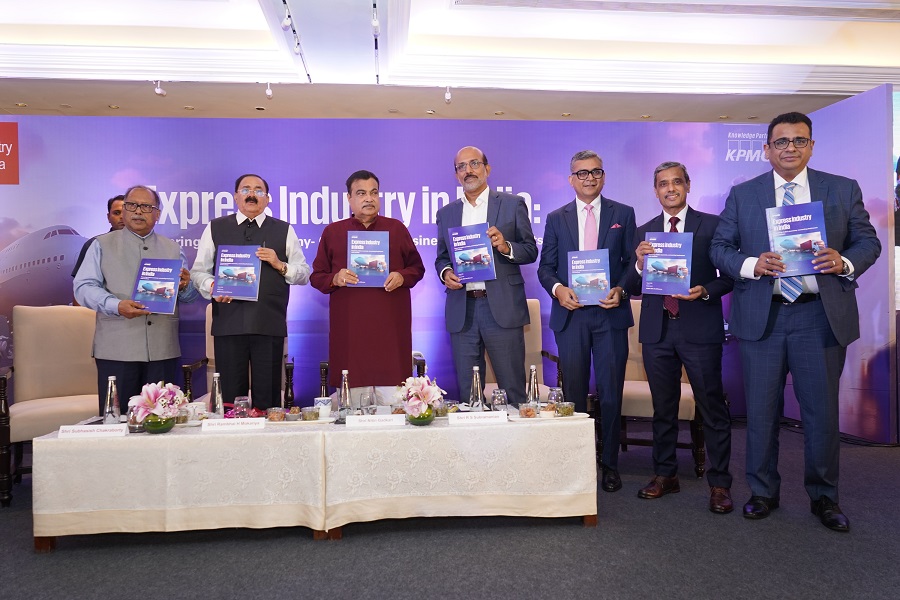
The Express Industry Council of India (EICI) unveiled its flagship report titled Express Industry in India 2025: Powering India’s Economy, Connecting Businesses and Markets, commissioned by EICI with KPMG in India as the knowledge partner. The report was launched by Shri Nitin Gadkari, Union Cabinet Minister for Road Transport and Highways, Government of India, along with senior government functionaries, industry leaders and other stakeholders in New Delhi.
The study highlights the sector’s expansion from USD 3 billion in FY17 to USD 9 billion in FY25, recording a compound annual growth rate of 12 to 15 per cent. It projects that the market will double to between USD 18 and 22 billion by FY30. By FY25, the express industry is expected to support between 2.8 and 3 million jobs, make a significant contribution to GST revenues of USD 1 to 1.5 billion and Customs revenues of USD 650 million, and act as a vital enabler for e-commerce, MSMEs and cross-border trade.
The report notes that the express industry has transformed from a logistics facilitator to an essential service provider, playing a critical role during the COVID-19 pandemic in supporting the world’s largest vaccination drive and ensuring priority delivery of essential goods. Post-pandemic growth is being driven by high internet and smartphone penetration, exponential growth of e-commerce, the rise of MSME output and significant infrastructure expansion into tier II and III cities.
Domestic express accounts for about 70 per cent of the total market, valued at USD 6.3 to 6.5 billion, with surface express contributing the largest share. The international express segment, with a share of around 30 per cent, handled 19.5 million shipments weighing approximately 1,52,300 tones in FY24, registering an average growth rate of 18 per cent between FY21 and FY24. Growth in this segment is being fueled by the increased global appetite for Made-in-India products, including handicrafts, ethnic wear, home furnishings, auto components and other manufactured goods.
Commenting on the report, Vijay Kumar, CEO, EICI, said: "The express industry has become a critical pillar of India’s economy, connecting businesses and markets with speed and reliability. From supporting the world’s largest vaccination drive to enabling e-commerce, MSMEs and exports, our sector has shown agility, resilience and innovation. Domestic express, which makes up around 70 per cent of the market, is led by surface transport growth, while international express is expanding rapidly with global demand for Made-in-India products.”
“Our priority now is to enhance efficiency, deepen customer centricity, adopt sustainable practices and leverage technology to serve a fast-changing market. With shifting consumer behavior, rapid digital adoption and growing domestic and international deliveries, the sector will be central to achieving India’s Viksit Bharat 2047 goals "
Girish Nair Partner – Mobility and Logistics, National head- Aviation Sector, Global Lead-Airports, KPMG in India said-” India’s express logistics industry is undergoing rapid transformation to meet the growing demand for fast and reliable delivery solutions—not only through air, but also across road, rail, and coastal networks. Enhancing operational efficiency through digitization and automation, while exploring strategic growth opportunities such as positioning India as a transshipment hub, will further advance the sector and strengthen its global competitiveness. As consumer expectations evolve and cross-border commerce accelerates, the industry must embrace digital technologies, automation, and collaborative infrastructure development to deliver smarter, faster, and more dependable solutions. With robust policy support and a future-ready mindset, India could be well-positioned to emerge as a global benchmark for excellence in express delivery”
Chintan Patel, Partner- Deal Advisory (Transport and Logistics), KPMG in India said “India’s express industry is no longer just a logistics service—it's a strategic engine of economic growth and innovation. With consolidation driving efficiency, technology setting new benchmarks, and multi-modal infrastructure paving the way for sustainable delivery, the sector is redefining speed, reliability, and scale in the digital age. As market demands evolve and commerce accelerates, the express industry stands poised to lead India into a new era of smart, connected logistics.”
Key Trends Shaping the Express Industry
* Consolidation: Companies are strengthening efficiency and market reach through mergers, acquisitions and strategic partnerships.
* Agile business models: The sector is developing customized solutions to meet the growing demands of e-commerce, social commerce and quick commerce.
* Digital transformation: Players are deploying advanced technologies such as blockchain, artificial intelligence, machine learning and automation to improve delivery speed and customer experience.
* Sustainability: Industry leaders are committing to net zero targets and adopting greener operational practices to address environmental and social expectations.
The report further identifies five priority areas for unlocking future growth. These are agility and adaptability, efficiency improvements, customer centricity, a sustainable operating outlook and a robust policy and regulatory framework. It calls for targeted policy measures, infrastructure expansion and technology adoption, supported by initiatives such as PM Gati Shakti, the National Logistics Policy and Bharatmala Pariyojna.
Above views are of the author and not of the website kindly read disclaimer













